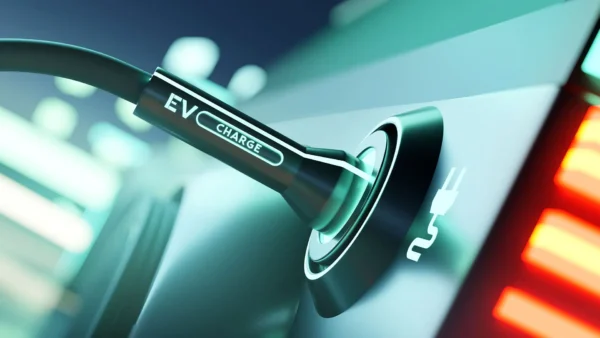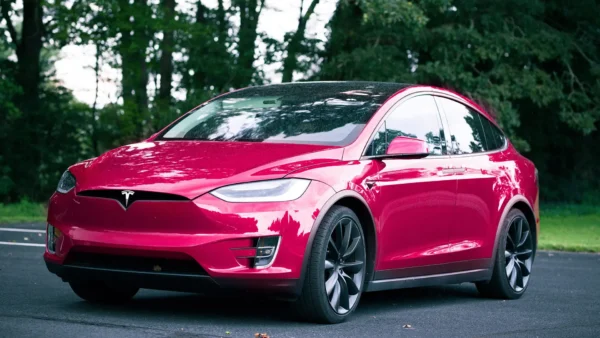Electric vehicle (EV) sales in Canada have been gradually rising. EVs are unique in that they are powered either fully or partially by an electric battery versus a traditional gas-powered engine. But is that battery covered in your auto insurance coverage?
There are several situations where car insurance will and will not cover battery replacement and it all boils down to why the battery needs replacing.
Are electric vehicle batteries covered if they die?
No. From an insurance perspective, batteries are considered “consumable” items. Other items also deemed consumable are tires, windshield wipers, engines, etc. These are all items that will wear down with time and even break as your car is used. Consumable auto products aren’t covered by your insurance, assuming they aren’t damaged or destroyed in an accident or other covered event. If they simply die or give out over time due to lack of maintenance or simple wear and tear, that’s a cost you’ll have to front yourself. With newer EVs, battery replacement could be covered by your warranty. Most EV manufacturers will have 8 to 10-year warranties or specific mileage on batteries.
Are electric vehicle batteries covered if they’re damaged in an accident?
In most cases, yes. Your car insurance will generally cover the replacement of your batteries in an insured accident, so keep in mind that if only have the basics (third-party liability, uninsured motorist, accident benefits, and so forth) and your car’s batteries are damaged in a rollover, you may not be covered.
Here are various scenarios where your batteries may be covered by your insurance, and the corresponding coverage that would trigger during the event:
Rollover or hitting a stationary object
If you were to rollover in your electric vehicle or hit a stationary object such as a lamp post, concrete barrier, or similar object with no other vehicle participating, then this would be insurable under collision or upset coverage. Assuming your vehicle’s battery was damaged or destroyed in the accident, its repairs or replacement would be included in your final settlement.
Collision coverage is optional, meaning that you must first purchase it to be covered. Without collision coverage, rollover events or collisions with stationary objects will not be covered and the price to replace your battery would come out of your own pocket.
Collision with another vehicle
Collisions involving other vehicles can be tricky, because they can fall under any section of coverage depending on the circumstances. For example:
In a not at-fault accident where the other driver is identified and has insurance, the collision (and your battery’s replacement or repairs) may be covered under direct compensation-property damage (DCPD) coverage. If you have elected to remove DCPD from your insurance policy, the incident could be covered by your collision coverage but, again, only if you’ve purchased it.
In a not at-fault accident where the other driver is identified but doesn’t have insurance, or has insufficient coverage, then that would be covered under your uninsured motorist coverage. If it’s a hit-and-run or the driver is unable to be identified for whatever reason, you may have coverage under your collision insurance (if applicable).
Assuming there is coverage for your accident, battery damage or loss due to vehicle collision would be covered under your insurance.
Damage due to non-collision
Damage due to non-collision may be caused by weather, falling objects, fire, etc., and is covered only under an optional coverage known as comprehensive coverage. Lenders (dealerships or financing companies who you make an agreement with when leasing or financing a car) will frequently require collision and comprehensive coverage together, as per your agreement with them.
For example, if a tree fell onto your vehicle and damaged or destroyed your battery, its repairs or replacement may be covered by your comprehensive insurance. Without it, these costs are likely to come out of your own pocket.
Are electric vehicle batteries covered if they’re stolen?
Many types of theft are covered by “full coverage” auto insurance (i.e., having all the mandatory coverages as well as DCPD, comprehensive and collision), including when the whole vehicle is stolen, if only certain belongings are stolen, or if certain parts of the vehicle are stolen.
However, if you only have the bare minimum insurance and elected not to purchase collision/comprehensive coverage, battery theft won’t be covered.
A new hybrid battery or purely EV battery can cost anywhere from $2,000 to $20,000, depending on the vehicle model, power rating, and battery type. We highly recommend protecting your investment with the right car insurance to avoid having to pay costs out-of-pocket. Keep in mind that while wear and tear of consumable items are never covered by insurance, insurable accidents and events are – as long as you have the right coverage.
Battery replacement is a significant cost that you’ll likely have to budget for when your EV’s battery life starts to dwindle, but it’s good to know you have insurance for when the unexpected happens. Give us a call to discuss your EV or hybrid’s insurance today.
Looking for car insurance?
Speak with a Mitch Insurance broker today to get a quote on Ontario auto insurance.
Call now
1-800-731-2228







